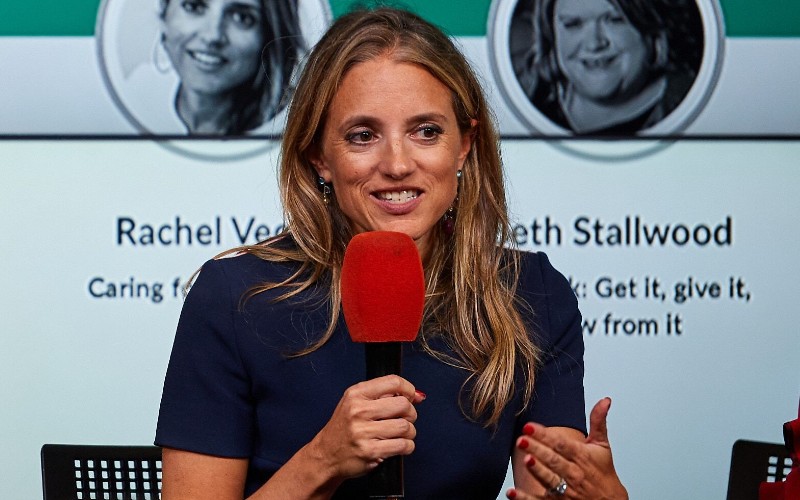Welcome to our EdTech Insights report for 2024.
Published alongside our annual EdTech 50 ranking, the report quantifies and reflects technology trends in education and workplace development.
After our readers and an expert judging panel together decided the UK’s most innovative startups, scaleups and established technology firms serving the sector, we polled the 50 companies.
Nineteen of the 50 companies are based in London, followed by Sheffield and Newcastle (both 3). There are two firms headquartered in each of Manchester, Leeds, Bolton and Birmingham, with a further 17 towns and cities represented.
The stats
Have you seen an acceleration in the adoption of education technology over the past 12 months?
Is enough being done to improve accessibility and inclusivity in education and workplace development?
Have you raised investment in the last 12 months?
Do you intend to raise investment in the coming 12 months?
Do you plan to expand your workforce in the coming 12 months?
YES – 91%
NO – 0%
MAINTAIN – 9%
Do you use AI in your business?
Do you plan to use AI in the coming 12 months?
The views
Judge Rachel Vecht (below), founder of Educating Matters, says the greatest acceleration she has seen in EdTech was during COVID – and this has continued ever since.

The educator adds: “My concern is that there will end up being too much reliance on tech and less interaction with teachers. It’s a very fine balance: there are incredible benefits of accessing education through tech, especially in less developed countries; but this should not replace human interaction.”
Professor Denise Whitelock, director of The Open University’s Institute of Educational Technology and also on the judging panel, says she has seen “increasing interest in accessibility issues for students using EdTech and supporting them with their studies”.
Trends
We asked the judges and EdTech 50 to describe a particular trend they have noticed in EdTech in the last year.
Vecht and Whitelock agree on AI and large language models, with the former describing a “large learning curve to ensure we understand how best to adapt and use AI” and Whitelock (below) identifying “a bigger shift to more personalised feedback with AI systems”.

Murray Morrison, chief executive and founder of third-placed Tassomai, says there has been an increased interest in the use of adaptive, personalising technology.
“The market has begun to embrace what the best tools have been developing over recent years, especially those with a good track record of demonstrating impact,” he explains. “There’s a growing emphasis on tech that can bring more impact for lower attainers and close the gap for SEN (special education needs) and PP (pupil premium).”
London-based Tassomai’s software is used by students to boost their key curriculum knowledge and understanding in 10 different subjects.
“I expect to see a continuation towards a wider implementation of quality EdTech, not just within the school, but with parents and guardians too – making the whole use of tech in education more transparent and inclusive,” Morrison continues.
Patrick Penzo, growth lead at London-based Quench, points to “a number of redundancies and, in some cases, cuts to L&D (learning & development) budgets as companies have adapted to new realities in the market”.
“In the second half of last year, we saw a growing appetite from businesses to understand how they can make their smaller, leaner teams more efficient,” he adds. “Many companies have been assessing their current learning solutions and questioning their impact and many are interested in finding new, more impactful approaches.
“We expect companies will continue with this focus and look for approaches that enable their teams to upskill their learner teams more effectively.”
Vecht says she expects to see audio and AI coming together: “Understanding speech and responding in real time has tremendous potential especially for neurodiverse pupils and auditory rather than visual learners… digital tutors talking to pupils in real time will be tremendously powerful for many students.”
Accessibility & inclusion
How might accessibility and inclusivity in education and workplace development be improved, in the view of the EdTech 50 and judges?
“We need to accommodate more for different learning styles,” says Vecht. “Many children do not fulfil their potential through traditional-style exams. There is not enough adaptation in the classroom.”
Lauren Foley, product development manager at Lewes-based Tapestry – a secure online learning journal crowned No.1 in the 2024 ranking – says its team feels that not enough is being done to improve inclusivity and accessibility.
“We’re working to create education content to support inclusivity, collaborating with specialists to record podcasts, write articles and produce resources to help educators to learn and to improve their practice,” she adds.
Morrison says he is seeing tremendous work being done across the sector to address issues around accessibility and inclusivity: “While there are many improvements still to be made, I’m quite proud to work in an industry where people work together so hard to improve the lives of students and teachers.”
Nic Ponsford, CEO & founder of Global Equality Collective, says education and workplace development will see a huge demand to ensure inclusive cultures are at the core of their practice and policies in the next few years – “not just part of the vision and values”.
“Using data and insights to better understand the underserved voices in education will have a greater impact on how we deal with staff recruitment and retention, student attainment and safeguarding – and a sense of ‘belonging’ for all,” she qualifies.
“As we enter the age of neurodiversity awareness, organisations will need to upskill in confident use of assistive technology. Moving from a ‘nice to have’ for those that don’t need it, to absolutely life-changing for those that do.”
However Lisa McCartney, founder of Plytime Learning – which featured on our sister publication TechBlast’s Manchester Startups 2.0 list last year – says there are not enough laptops and tablets in schools for all children to benefit which leads to “a lack of personalisation and teaching to the middle”.
Building Our Startup: Ian & Lisa McCartney, Plytime Learning
Challenges
What challenges do educators face in integrating technology into the learning process?
“Most young people are keen not to be left behind when it comes to AI, but once the genie is let out of the lamp, it’s hard to control or slow down the pace,” warns Vecht. “Teachers are already extremely pressed for time and getting their heads around AI and all these new and innovative platforms and tools takes time, no matter how beneficial they are and even if they ultimately save time.”
McCartney’s concern is that “teachers lack technological know-how… and Ofsted are not keeping pace with technology”.
Ponsford adds: “Infrastructure is the main barrier for educators. If the digital infrastructure is not there, you cannot bring in devices, nor training.”
On a personal level, Immersify Education founder and CEO Chloe Barrett says the last year has been “horrible” to fundraise despite the Salford firm’s 500% growth: “I will be glad to see the back of it.”
McCartney agrees: “It’s harder to get funding for genuinely new products because investors are sticking to what they know. Investors lack vision about what the future will look like.”
EdTech 50 – UK’s most innovative education tech creators for 2024
Artificial intelligence
With 100% of respondents already using AI in their business, we were keen to find out exactly how – plus how they intend to in the coming months.
“Beyond the aspects of artificial intelligence from which Tassomai’s adaptive education model has always run, we’ve recently started to develop a range of products that use AI for student interaction,” says Morrison. “Our first new product is Mai, an AI tutor that is available 24/7 to support students as they take part in learning exercises on Tassomai – to help explain tougher questions or help give a bit more context or support – and many further developments are in the pipeline.”
Penzo answers: “Quench.ai helps businesses create a copilot out of their training content. Our approach is to flip the training model, helping people find a relevant answer to their challenge in the flow of work, rather than leading them through formal training programs that struggle to achieve high engagement.”
Immersify Education’s Barrett (below) says: “In business processes and personalisation in content.”

Foley of Tapestry answers: “We’re keen to not implement AI for the sake of it, or to do anything that might interfere with practitioners using their judgement or skills, but we think we can take some of the legwork out of the more administrative or analytical work.”
Any other business
We also gave respondents the opportunity to raise any other points – positive or negative – around tech in the industry or the ecosystem of wider business support.
Judge Whitelock says that augmented reality “has far more potential [than virtual reality] for the health sciences now, especially for training purposes”.
Vecht says much of the schooling system, curriculum and assessment process does not really set students up with the skills they need to ‘succeed’ in life. “Tech and the world of work is advancing at a faster pace than ever, the school curriculum is not keeping up and adapting sufficiently.
“I would rather see an emphasis on cognitive skills such as logical reasoning, problem solving, critical analysis, creativity and emotional intelligence.”

Morrison (above) is frustrated to see schools continually struggling to meet the needs of students with diminishing budgets and increasing costs. “There’s a really amazing sector of practitioners, leaders and suppliers all trying to make education in Britain the envy of the world, but the reality is that this is being made harder and harder to achieve.
“I hope to see funding increase dramatically with the next government: it is, after all, one of the best investments we can make for the future of the country.”
Ponsford’s concern is that ethics needs to be at the heart of tech in education: “Purpose over profit… we need to ensure that ‘tech for good’ is how we build the foundation for the future of EdTech, everywhere.”
McCartney concludes: “There is a lack of appetite among the wider business community to support education, with much more attention given to environmental issues.”


